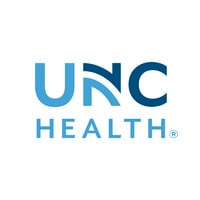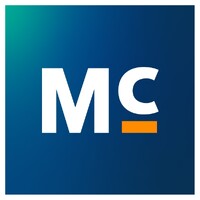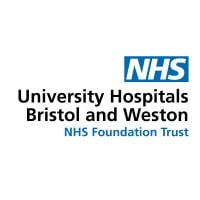
UNC Health Company Cyber Security Posture
unchealth.orgOur mission is to improve the health and well-being of North Carolinians and others whom we serve. We accomplish this by providing leadership and excellence in the interrelated areas of patient care, education and research. UNC Health and its 33,000 employees, continue to serve as North Carolina’s Health Care System, caring for patients from all 100 counties and beyond our borders. We continue to leverage the world class research conducted in the UNC School of Medicine, translating that innovation to life-saving and life-changing therapies, procedures, and techniques for the patients who rely on us. General terms of service for UNC Health social media: https://www.facebook.com/unchealthcare/about_details
UNC Health Company Details
unc-health-care
18142 employees
99029.0
62
Hospitals and Health Care
unchealth.org
73
UNC_1134467
In-progress
Between 800 and 900
This score is AI-generated and less favored by cyber insurers, who prefer the TPRM score.
 UNC Health Global Score
UNC Health Global Score.png)

UNC Health Company Scoring based on AI Models
| Model Name | Date | Description | Current Score Difference | Score |
|---|---|---|---|---|
| AVERAGE-Industry | 03-12-2025 | This score represents the average cybersecurity rating of companies already scanned within the same industry. It provides a benchmark to compare an individual company's security posture against its industry peers. | N/A | Between 800 and 900 |
UNC Health Company Cyber Security News & History
| Entity | Type | Severity | Impact | Seen | Url ID | Details | View |
|---|---|---|---|---|---|---|---|
| UNC Health | Breach | 50 | 4 | 03/2017 | UNC93815722 | Link | |
Rankiteo Explanation : Attack with significant impact with customers data leaksDescription: UNC Health Care faced a data breach incident that exposed 1,300 patients' data. Confidential medical information has been shared including Social Security numbers, sexually-transmitted disease information, and more. Patients whose information has been compromised were offered a variety of support services, including credit report monitoring and fraud resolution services, by UNC Health Care. | |||||||
| UNC Hospitals | Breach | 60 | 3 | 04/2021 | UNC2295223 | Link | |
Rankiteo Explanation : Attack with significant impact with internal employee data leaksDescription: "UNC Hospitals discovered that one SOM faculty member's email account have been compromised by an unauthorised party. SOM and UNC Hospitals shut down the affected email account, launched an investigation, and hired a cyber security company to help in the inquiry. SOM and UNC Hospitals have no indication that any other SOM or UNC Hospitals user email accounts or patient information systems were involved or accessed. No evidence of improper use of patient information has been found at SOM or UNC Hospitals. The SOM and UNC Hospitals advise patients to carefully go over the billing statement they get from their healthcare providers. | |||||||
UNC Health Company Subsidiaries

Our mission is to improve the health and well-being of North Carolinians and others whom we serve. We accomplish this by providing leadership and excellence in the interrelated areas of patient care, education and research. UNC Health and its 33,000 employees, continue to serve as North Carolina’s Health Care System, caring for patients from all 100 counties and beyond our borders. We continue to leverage the world class research conducted in the UNC School of Medicine, translating that innovation to life-saving and life-changing therapies, procedures, and techniques for the patients who rely on us. General terms of service for UNC Health social media: https://www.facebook.com/unchealthcare/about_details
Access Data Using Our API

Get company history
.png)
UNC Health Cyber Security News
Healthcare CISOs discuss the role's challenges at HIMSS event
Learn about the top challenges that healthcare CISOs face, as discussed during a panel session at the HIMSS Healthcare Cybersecurity Forum.
Hospital competition heats up as capacity wanes
North Carolina health systems are vying for a limited number of hospital beds to try to expand their reach and keep up with population ...
UNC to establish AI-driven oncology center
The project is designed to improve cancer diagnosis and support personalized treatments by quickly aggregating and analyzing a wide range of health data.
UNC Health network outage highlights ongoing questions about critical infrastructure security
UNC Health is back up and running after an "unforeseen issue" during routine maintenance on Wednesday prompted a network outage at 15 of the group's hospitals.
Statewide Impact of Carolina’s Research
Every day Carolina researchers make discoveries with impact that save and transform lives far beyond the confines of our campus.
Early adoption of cybersecurity, data science and AI puts UNC Charlotte at the forefront of these technologies
UNC Charlotte researchers set out to grapple with AI's ethical questions and embrace it as a tool for solving critical problems.
Three Health Systems Join Helix Research Network
Precision health company Helix has added three new health systems to its research network, each committing to enroll 100,000 participants.
RDU, hospitals & businesses in NC feel impacts of global IT outage
The outage, caused by a software update by a massive cyber firm, hit industries across the world – including airlines, banks, health care and media ...
Cyberattack may have stolen personal data from N.C.'s biggest hospitals
The attack on a vendor may mean that personal data was stolen from North Carolina's biggest hospital systems.

UNC Health Similar Companies

McKesson
Welcome to the official LinkedIn page for McKesson Corporation. We're an impact-driven healthcare organization dedicated to “Advancing Health Outcomes For All.” As a global healthcare company, we touch virtually every aspect of health. Our leaders empower our people to lead with a growth mindset an

Greater Paris University Hospitals - AP-HP
AP-HP (Greater Paris University Hospitals) is a European world-renowned university hospital. Its 39 hospitals treat 8 million people every year: in consultation, emergency, during scheduled or home hospitalizations. The AP-HP provides a public health service for everyone, 24 hours a day. This missi

University Hospitals Bristol and Weston NHS Foundation Trust
We are University Hospitals Bristol and Weston NHS Foundation Trust (UHBW). One of the largest acute Trusts in the country, bringing together a combined workforce of over 13,000 staff and over 100 different clinical services across 10 different sites, serving a core population of more than 500,000 p

Vancouver Coastal Health
Join a team connected by collaboration, support and most importantly, the goal of providing quality patient care. We value career growth with employer-supported training, encourage a culture where everyone’s voice is heard and strive to create a supportive team environment. To learn more, visit vch.

Alberta Health Services
Alberta Health Services (AHS) is Canada’s first and largest province wide, fully-integrated health system, responsible for delivering health services to the over four million people living in Alberta. Our skilled and dedicated professionals, support staff and physicians come from numerous discipli

Prince Albert Parkland Health Region
The Prince Albert Parkland Health Region ceased operations on December 4, 2017 when it became part of the Saskatchewan Health Authority (SHA). The Saskatchewan Health Authority is the largest organization in Saskatchewan, employing over 44,000 employees and physicians responsible for the delivery

Frequently Asked Questions (FAQ) on Cybersecurity Incidents
UNC Health CyberSecurity History Information
Total Incidents: According to Rankiteo, UNC Health has faced 2 incidents in the past.
Incident Types: The types of cybersecurity incidents that have occurred include ['Breach'].
Total Financial Loss: The total financial loss from these incidents is estimated to be {total_financial_loss}.
Cybersecurity Posture: The company's overall cybersecurity posture is described as Our mission is to improve the health and well-being of North Carolinians and others whom we serve. We accomplish this by providing leadership and excellence in the interrelated areas of patient care, education and research. UNC Health and its 33,000 employees, continue to serve as North Carolina’s Health Care System, caring for patients from all 100 counties and beyond our borders. We continue to leverage the world class research conducted in the UNC School of Medicine, translating that innovation to life-saving and life-changing therapies, procedures, and techniques for the patients who rely on us. General terms of service for UNC Health social media: https://www.facebook.com/unchealthcare/about_details.
Detection and Response: The company detects and responds to cybersecurity incidents through {description_of_detection_and_response_process}.
Incident Details
Incident 1: Ransomware Attack
Title: {Incident_Title}
Description: {Brief_description_of_the_incident}
Date Detected: {Detection_Date}
Date Publicly Disclosed: {Disclosure_Date}
Date Resolved: {Resolution_Date}
Type: {Type_of_Attack}
Attack Vector: {Attack_Vector}
Vulnerability Exploited: {Vulnerability}
Threat Actor: {Threat_Actor}
Motivation: {Motivation}
Incident 2: Data Breach
Title: {Incident_Title}
Description: {Brief_description_of_the_incident}
Date Detected: {Detection_Date}
Date Publicly Disclosed: {Disclosure_Date}
Date Resolved: {Resolution_Date}
Type: {Type_of_Attack}
Attack Vector: {Attack_Vector}
Vulnerability Exploited: {Vulnerability}
Threat Actor: {Threat_Actor}
Motivation: {Motivation}
Common Attack Types: The most common types of attacks the company has faced are ['Breach'].
Identification of Attack Vectors: The company identifies the attack vectors used in incidents through {description_of_identification_process}.
Impact of the Incidents
Incident 1: Ransomware Attack
Financial Loss: {Financial_Loss}
Data Compromised: {Data_Compromised}
Systems Affected: {Systems_Affected}
Downtime: {Downtime}
Operational Impact: {Operational_Impact}
Conversion Rate Impact: {Conversion_Rate_Impact}
Revenue Loss: {Revenue_Loss}
Customer Complaints: {Customer_Complaints}
Brand Reputation Impact: {Brand_Reputation_Impact}
Legal Liabilities: {Legal_Liabilities}
Identity Theft Risk: {Identity_Theft_Risk}
Payment Information Risk: {Payment_Information_Risk}
Incident 2: Data Breach
Financial Loss: {Financial_Loss}
Data Compromised: {Data_Compromised}
Systems Affected: {Systems_Affected}
Downtime: {Downtime}
Operational Impact: {Operational_Impact}
Conversion Rate Impact: {Conversion_Rate_Impact}
Revenue Loss: {Revenue_Loss}
Customer Complaints: {Customer_Complaints}
Brand Reputation Impact: {Brand_Reputation_Impact}
Legal Liabilities: {Legal_Liabilities}
Identity Theft Risk: {Identity_Theft_Risk}
Payment Information Risk: {Payment_Information_Risk}
Average Financial Loss: The average financial loss per incident is {average_financial_loss}.
Commonly Compromised Data Types: The types of data most commonly compromised in incidents are {list_of_commonly_compromised_data_types}.
Incident 1: Ransomware Attack
Entity Name: {Entity_Name}
Entity Type: {Entity_Type}
Industry: {Industry}
Location: {Location}
Size: {Size}
Customers Affected: {Customers_Affected}
Incident 2: Data Breach
Entity Name: {Entity_Name}
Entity Type: {Entity_Type}
Industry: {Industry}
Location: {Location}
Size: {Size}
Customers Affected: {Customers_Affected}
Response to the Incidents
Incident 1: Ransomware Attack
Incident Response Plan Activated: {Yes/No}
Third Party Assistance: {Yes/No}
Law Enforcement Notified: {Yes/No}
Containment Measures: {Containment_Measures}
Remediation Measures: {Remediation_Measures}
Recovery Measures: {Recovery_Measures}
Communication Strategy: {Communication_Strategy}
Adaptive Behavioral WAF: {Adaptive_Behavioral_WAF}
On-Demand Scrubbing Services: {On_Demand_Scrubbing_Services}
Network Segmentation: {Network_Segmentation}
Enhanced Monitoring: {Enhanced_Monitoring}
Incident 2: Data Breach
Incident Response Plan Activated: {Yes/No}
Third Party Assistance: {Yes/No}
Law Enforcement Notified: {Yes/No}
Containment Measures: {Containment_Measures}
Remediation Measures: {Remediation_Measures}
Recovery Measures: {Recovery_Measures}
Communication Strategy: {Communication_Strategy}
Adaptive Behavioral WAF: {Adaptive_Behavioral_WAF}
On-Demand Scrubbing Services: {On_Demand_Scrubbing_Services}
Network Segmentation: {Network_Segmentation}
Enhanced Monitoring: {Enhanced_Monitoring}
Incident Response Plan: The company's incident response plan is described as {description_of_incident_response_plan}.
Third-Party Assistance: The company involves third-party assistance in incident response through {description_of_third_party_involvement}.
Data Breach Information
Incident 2: Data Breach
Type of Data Compromised: {Type_of_Data}
Number of Records Exposed: {Number_of_Records}
Sensitivity of Data: {Sensitivity_of_Data}
Data Exfiltration: {Yes/No}
Data Encryption: {Yes/No}
File Types Exposed: {File_Types}
Personally Identifiable Information: {Yes/No}
Prevention of Data Exfiltration: The company takes the following measures to prevent data exfiltration: {description_of_prevention_measures}.
Handling of PII Incidents: The company handles incidents involving personally identifiable information (PII) through {description_of_handling_process}.
Ransomware Information
Incident 1: Ransomware Attack
Ransom Demanded: {Ransom_Amount}
Ransom Paid: {Ransom_Paid}
Ransomware Strain: {Ransomware_Strain}
Data Encryption: {Yes/No}
Data Exfiltration: {Yes/No}
Ransom Payment Policy: The company's policy on paying ransoms in ransomware incidents is described as {description_of_ransom_payment_policy}.
Data Recovery from Ransomware: The company recovers data encrypted by ransomware through {description_of_data_recovery_process}.
Regulatory Compliance
Incident 1: Ransomware Attack
Regulations Violated: {Regulations_Violated}
Fines Imposed: {Fines_Imposed}
Legal Actions: {Legal_Actions}
Regulatory Notifications: {Regulatory_Notifications}
Incident 2: Data Breach
Regulations Violated: {Regulations_Violated}
Fines Imposed: {Fines_Imposed}
Legal Actions: {Legal_Actions}
Regulatory Notifications: {Regulatory_Notifications}
Regulatory Frameworks: The company complies with the following regulatory frameworks regarding cybersecurity: {list_of_regulatory_frameworks}.
Ensuring Regulatory Compliance: The company ensures compliance with regulatory requirements through {description_of_compliance_measures}.
Lessons Learned and Recommendations
Incident 1: Ransomware Attack
Lessons Learned: {Lessons_Learned}
Incident 2: Data Breach
Lessons Learned: {Lessons_Learned}
Incident 1: Ransomware Attack
Recommendations: {Recommendations}
Incident 2: Data Breach
Recommendations: {Recommendations}
Key Lessons Learned: The key lessons learned from past incidents are {list_of_key_lessons_learned}.
Implemented Recommendations: The company has implemented the following recommendations to improve cybersecurity: {list_of_implemented_recommendations}.
References
Additional Resources: Stakeholders can find additional resources on cybersecurity best practices at {list_of_additional_resources}.
Investigation Status
Incident 1: Ransomware Attack
Investigation Status: {Investigation_Status}
Incident 2: Data Breach
Investigation Status: {Investigation_Status}
Communication of Investigation Status: The company communicates the status of incident investigations to stakeholders through {description_of_communication_process}.
Stakeholder and Customer Advisories
Incident 1: Ransomware Attack
Stakeholder Advisories: {Stakeholder_Advisories}
Customer Advisories: {Customer_Advisories}
Incident 2: Data Breach
Stakeholder Advisories: {Stakeholder_Advisories}
Customer Advisories: {Customer_Advisories}
Advisories Provided: The company provides the following advisories to stakeholders and customers following an incident: {description_of_advisories_provided}.
Initial Access Broker
Incident 1: Ransomware Attack
Entry Point: {Entry_Point}
Reconnaissance Period: {Reconnaissance_Period}
Backdoors Established: {Backdoors_Established}
High Value Targets: {High_Value_Targets}
Data Sold on Dark Web: {Yes/No}
Incident 2: Data Breach
Entry Point: {Entry_Point}
Reconnaissance Period: {Reconnaissance_Period}
Backdoors Established: {Backdoors_Established}
High Value Targets: {High_Value_Targets}
Data Sold on Dark Web: {Yes/No}
Monitoring and Mitigation of Initial Access Brokers: The company monitors and mitigates the activities of initial access brokers through {description_of_monitoring_and_mitigation_measures}.
Post-Incident Analysis
Incident 1: Ransomware Attack
Root Causes: {Root_Causes}
Corrective Actions: {Corrective_Actions}
Incident 2: Data Breach
Root Causes: {Root_Causes}
Corrective Actions: {Corrective_Actions}
Post-Incident Analysis Process: The company's process for conducting post-incident analysis is described as {description_of_post_incident_analysis_process}.
Corrective Actions Taken: The company has taken the following corrective actions based on post-incident analysis: {list_of_corrective_actions_taken}.
Additional Questions
General Information
Ransom Payment History: The company has {paid/not_paid} ransoms in the past.
Last Ransom Demanded: The amount of the last ransom demanded was {last_ransom_amount}.
Last Attacking Group: The attacking group in the last incident was {last_attacking_group}.
Incident Details
Most Recent Incident Detected: The most recent incident detected was on {most_recent_incident_detected_date}.
Most Recent Incident Publicly Disclosed: The most recent incident publicly disclosed was on {most_recent_incident_publicly_disclosed_date}.
Most Recent Incident Resolved: The most recent incident resolved was on {most_recent_incident_resolved_date}.
Impact of the Incidents
Highest Financial Loss: The highest financial loss from an incident was {highest_financial_loss}.
Most Significant Data Compromised: The most significant data compromised in an incident was {most_significant_data_compromised}.
Most Significant System Affected: The most significant system affected in an incident was {most_significant_system_affected}.
Response to the Incidents
Third-Party Assistance in Most Recent Incident: The third-party assistance involved in the most recent incident was {third_party_assistance_in_most_recent_incident}.
Containment Measures in Most Recent Incident: The containment measures taken in the most recent incident were {containment_measures_in_most_recent_incident}.
Data Breach Information
Most Sensitive Data Compromised: The most sensitive data compromised in a breach was {most_sensitive_data_compromised}.
Number of Records Exposed: The number of records exposed in the most significant breach was {number_of_records_exposed}.
Ransomware Information
Highest Ransom Demanded: The highest ransom demanded in a ransomware incident was {highest_ransom_demanded}.
Highest Ransom Paid: The highest ransom paid in a ransomware incident was {highest_ransom_paid}.
Regulatory Compliance
Highest Fine Imposed: The highest fine imposed for a regulatory violation was {highest_fine_imposed}.
Most Significant Legal Action: The most significant legal action taken for a regulatory violation was {most_significant_legal_action}.
Lessons Learned and Recommendations
Most Significant Lesson Learned: The most significant lesson learned from past incidents was {most_significant_lesson_learned}.
Most Significant Recommendation Implemented: The most significant recommendation implemented to improve cybersecurity was {most_significant_recommendation_implemented}.
References
Most Recent Source: The most recent source of information about an incident is {most_recent_source}.
Most Recent URL for Additional Resources: The most recent URL for additional resources on cybersecurity best practices is {most_recent_url}.
Investigation Status
Current Status of Most Recent Investigation: The current status of the most recent investigation is {current_status_of_most_recent_investigation}.
Stakeholder and Customer Advisories
Most Recent Stakeholder Advisory: The most recent stakeholder advisory issued was {most_recent_stakeholder_advisory}.
Most Recent Customer Advisory: The most recent customer advisory issued was {most_recent_customer_advisory}.
Initial Access Broker
Most Recent Entry Point: The most recent entry point used by an initial access broker was {most_recent_entry_point}.
Most Recent Reconnaissance Period: The most recent reconnaissance period for an incident was {most_recent_reconnaissance_period}.
Post-Incident Analysis
Most Significant Root Cause: The most significant root cause identified in post-incident analysis was {most_significant_root_cause}.
Most Significant Corrective Action: The most significant corrective action taken based on post-incident analysis was {most_significant_corrective_action}.
What Do We Measure?
















Every week, Rankiteo analyzes billions of signals to give organizations a sharper, faster view of emerging risks. With deeper, more actionable intelligence at their fingertips, security teams can outpace threat actors, respond instantly to Zero-Day attacks, and dramatically shrink their risk exposure window.
These are some of the factors we use to calculate the overall score:
Identify exposed access points, detect misconfigured SSL certificates, and uncover vulnerabilities across the network infrastructure.
Gain visibility into the software components used within an organization to detect vulnerabilities, manage risk, and ensure supply chain security.
Monitor and manage all IT assets and their configurations to ensure accurate, real-time visibility across the company's technology environment.
Leverage real-time insights on active threats, malware campaigns, and emerging vulnerabilities to proactively defend against evolving cyberattacks.




